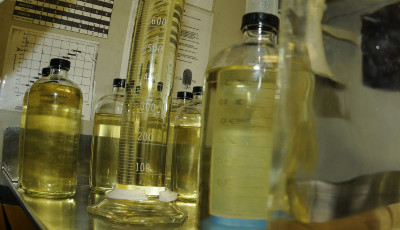Cleantech: If You Can’t Beat Them…
May 04, 2017
on
on

To make the transition to a low carbon energy system we need all the available technologies like wind, solar, biomass and hydropower as well as new technologies that are still being developed such as tidal energy and storage. It is therefore unfortunate that cleantech startups have a track record of not performing very well. This, however, may be about to change according to Marius Buchmann.
Buchmann is an energy economist working as a postdoc at the Jacobs University in Bremen, Germany. In an article on his website Enerquire he puts forth his theory about why things will change for the better.
Compared to software and medical startups, cleantech companies had a much lower performance in the period between 2006 and 2011, says Buchmann citing a study from MIT university. According to the study, cleantech was more likely to fail and yielded lower returns.
Many cleantech startups perish in the valley of death: the gap between needing money to develop a product and generating a positive cash flow once the product is on the market. This gap needs to be bridged by external funding. Buchmann posits that it has been much harder for cleantech startups to find that money. In other sectors an important source of funding comes from incumbent companies that acquire or invest in promising startups. Thus providing the necessary resources for research and development.
But in the energy sector incumbents did not have much love for startups. Their core business was fossil fuel-based and they considered cleantech a threat to their revenue stream. But the times are a-changing. The giants of old are beginning to realize that if they are to have a future, they need to transition from fossil fuel companies to energy companies with a broad portfolio of technologies and services.
This changing attitude is visible in how money is being spent. Buchmann presents a chart of investments by European and American utilities in renewable energy companies. It shows that investments and buy ups have increased since 2013 and have really taken off since 2015.
If you can’t beat them, join them.
Go read Buchmann’s article for more.
Image: Biofuel is tested in a fuel lab aboard the aircraft carrier USS Nimitz. Courtesy: U.S. Navy - public domain.
Buchmann is an energy economist working as a postdoc at the Jacobs University in Bremen, Germany. In an article on his website Enerquire he puts forth his theory about why things will change for the better.
Compared to software and medical startups, cleantech companies had a much lower performance in the period between 2006 and 2011, says Buchmann citing a study from MIT university. According to the study, cleantech was more likely to fail and yielded lower returns.
Many cleantech startups perish in the valley of death: the gap between needing money to develop a product and generating a positive cash flow once the product is on the market. This gap needs to be bridged by external funding. Buchmann posits that it has been much harder for cleantech startups to find that money. In other sectors an important source of funding comes from incumbent companies that acquire or invest in promising startups. Thus providing the necessary resources for research and development.
Subscribe
Tag alert: Subscribe to the tag Elektor Energy and you will receive an e-mail as soon as a new item about it is published on our website! But in the energy sector incumbents did not have much love for startups. Their core business was fossil fuel-based and they considered cleantech a threat to their revenue stream. But the times are a-changing. The giants of old are beginning to realize that if they are to have a future, they need to transition from fossil fuel companies to energy companies with a broad portfolio of technologies and services.
This changing attitude is visible in how money is being spent. Buchmann presents a chart of investments by European and American utilities in renewable energy companies. It shows that investments and buy ups have increased since 2013 and have really taken off since 2015.
If you can’t beat them, join them.
Go read Buchmann’s article for more.
Image: Biofuel is tested in a fuel lab aboard the aircraft carrier USS Nimitz. Courtesy: U.S. Navy - public domain.
Read full article
Hide full article


Discussion (0 comments)